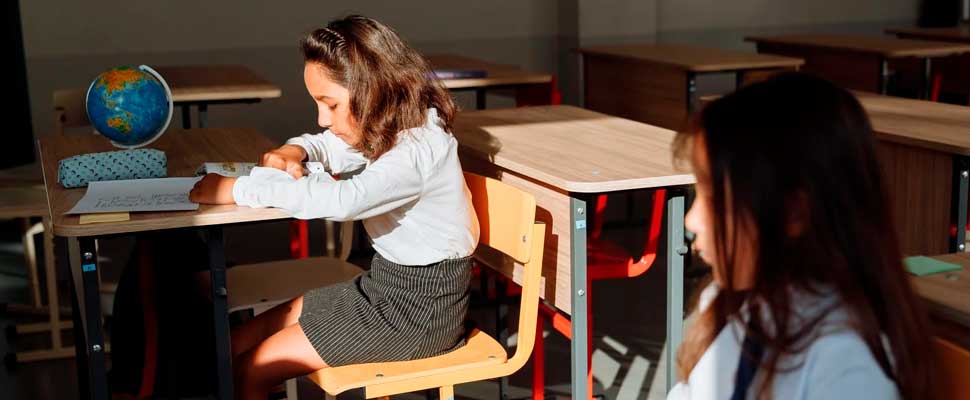The Emotional Impact on Children of Returning to School
The emotional process of children before returning to their classrooms in times of pandemic is sometimes not so easy, but we as adults can accompany them.

The Woman Post | Margarita Briceño
Listen to this article
The Coronavirus virus has affected the development and lifestyle of thousands of people around the world and our children are not the exception to the rule, because for many of them, returning to school again after such a period of prolonged absence can affect them emotionally and psychologically, feeling fear and uncertainty in the face of this new reality.
Dialogue, the Best Tool
The tension that the simple fact of starting a school year can cause in some children, added to the biosecurity measures to which they must now get used to, constitute a source of stress in the emotional life of our children, given the difficulty of understanding and appropriating totally new topics such as the physical distance they must keep between their classmates and teachers or the use of masks.
And how to help these children to resume their school life without fear? According to what UNICEF advises, the main key to facing these doubts is dialogue, having a close conversation with your child to find out what worries them. Be honest, explain to the little one about the changes you may find in your school, the responsibility they have for their health, and that there are many things you can do to stay safe such as frequent hand washing or not touching your face. It is very important to encourage them to express if they are not feeling well or if they are concerned about the virus.
Working on emotions from the classroom is essential, so remind your children of the positive aspects of going back to school, that they will be able to continue seeing their friends, their teachers and that they will continue to learn bland new things thanks to biosecurity measures.
Also read: HOW TO TEACH YOUR CHILD TO STAY CALM
See More in Emotions in the Classroom
Since children copy their emotions from adults who are closest to them such as their parents or their teachers, it is important that they control their own emotions well and remain calm, listen to the concerns of the little ones, speak to them with kindness and reassure them. Proposing creative activities, such as playing and drawing to help them express themselves and communicate any negative feelings they may have, is helpful for them to learn to recognize and manage their emotions and those of others.
Tips To Manage the Emotions That Children Take to School
The emotional process of children before returning to their classrooms in times of pandemic is sometimes not so easy, but we as adults can accompany them taking into account some considerations:
1. Plan the return to school with your child, involving them in buying school supplies, creating the new school schedule, asking them about extracurricular activities they would like to do, etc.
2. If your child does not want to go back to school, motivate them by organizing a good family plan to do at the end of the school day.
3. Find time to rest, remember that both adults and children need their own moment to take a break from obligations.
4. Talk to your child about the new school year and help them get back to new routines.
5. Do not forget to accompany your children with patience and love.




